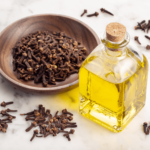
At Lotus Balm we use Camphor. It is a white, crystalline substance that has a strong odor and a cooling, numbing effect when applied to the skin. It is derived from the wood of the camphor tree, which is native to East Asia but is now grown in other parts of the world as well. Camphor has a wide range of uses, both medicinal and non-medicinal. Here are some of the most common uses of camphor:
- Topical Analgesic – Camphor is often used as a topical pain reliever. When applied to the skin, it creates a cooling, numbing sensation that can help to alleviate pain and inflammation.
- Insect Repellent – Camphor has a strong, pungent odor that is unappealing to insects, making it an effective insect repellent. It can be used to repel mosquitoes, flies, and other insects.
- Aromatherapy – Camphor oil is often used in aromatherapy to promote relaxation and relieve stress. It has a calming, soothing effect that can help to reduce anxiety and promote a sense of well-being.
- Cleaning Agent – Camphor has antimicrobial properties and is sometimes used as a cleaning agent. It can help to kill bacteria and prevent the growth of mold and mildew.
- Ingredient in Pharmaceuticals – Camphor is a common ingredient in many pharmaceutical products, including cough syrups, cold remedies, and pain relievers. It can help to relieve congestion, reduce coughing, and alleviate pain and inflammation.





